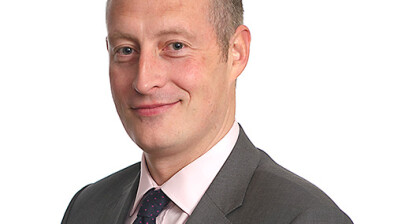RSM: Leadership contest adds uncertainty as businesses rebuild margins amid improving economic outlook

Alex Tait
Despite the largest interest rate rise in a generation, middle market businesses are demonstrating remarkable resilience, investing in people and productivity to rebuild profit margins, RSM’s latest Middle Market Business Index (MMBI) has shown.
The MMBI has risen to 131.4 in Q1, an increase of 16 points, and the largest rise since the index began.
The first MMBI of 2023 shows middle market leaders are more positive about the economic outlook compared to last quarter’s data, with 39% saying the economy has already improved, and 54% expecting it to improve over the next quarter, a significant jump up from 38% last quarter.
Alex Tait, regional managing partner for RSM Scotland, said: “While the overall sentiment is more positive than expected, businesses in Scotland have the added uncertainty over the result of the forthcoming SNP leadership contest and potential for a snap election to be called at Holyrood.
“Each of the three candidates has a different approach to economic and business growth, as well as taxation, but all three say they believe Scotland will be independent in the next five years.
“Whether this is realistic, or simply a way to garner support, it once again raises all sorts of questions for businesses in terms of what they would need to do to to prepare for an independent Scotland. What businesses want most at present is certainty over their operating environments as far as that is possible.”
Thomas Pugh, economist at RSM UK, said: “The good news is the anticipated recession will be mild by historical standards. The overall drop in GDP will probably be around 1%.
“That’s around half the size of the early 1990s recession, significantly smaller than the global financial crisis, and a fraction of the pandemic, when GDP fell by a massive 22%. This means the next year will feel more like a ‘slowcession’ than a typical recession.
“The rise in businesses expecting the economy to improve suggests renewed positivity, but we are not out of the woods yet. Business leaders should plan for another drop in economic growth, and inventory management is key to weathering the storm.
“Leaders should also focus on the recovery in the second half of the year, as businesses that invest in their people and productivity now will be best placed to benefit from the upswing when it arrives.”
Encouragingly, over half (59%) of middle market businesses plan to increase capital expenditure and investment over the next six months, and over half (58%) anticipate that turnover will increase.
There is evidence that firms are holding on to employees even though they have less work, opting to reduce their hours rather than lay them off and then having to recruit at a later date. While the unemployment rate has risen to 3.7%, it is still low given the current macroeconomic weakness. The tight labour market, and concerns about recruitment struggles, could explain why 48% of businesses hired more staff in Q1, and 61% say they are planning to recruit over the coming six months.
RSM UK’s latest MMBI also shows almost half (45%) of business leaders say their net profits are already up compared to last quarter, while 60% said they expect their net profits to increase over the next six months, a rise from 47% last quarter.
The data shows that some middle market firms are passing on costs to their customers. Almost half (48%) of businesses said they raised prices in Q1, while 64% said they intended to raise prices in the next six months, up from 57% in Q4. This is a key factor in why profitability increased significantly in Q1, with 45% saying net profits had increased, compared to only 35% in Q4.
There are encouraging signs that the huge ramp up in costs is abating, and middle market businesses are rebuilding their margins. With inflation still in double digits, unsurprisingly the data shows around two thirds (67%) of businesses paid more for their inputs in Q1 than last year. Inflation is now falling though, and this is likely to continue throughout 2023, as the Bank of England tries to reach its inflation target of 2%.
Mr Pugh concluded: “We would caution that a recession has most likely been delayed, rather than totally avoided. The combination of double-digit inflation, huge rises in interest rates, and less fiscal support from government means household disposable income will shrink significantly.
“Even if the UK does avoid recession, growth is likely to be extremely weak, and the economy is unlikely to be back to its 2019 size until 2024 at the earliest. While there’s signs of light at the end of the tunnel now, there’s still a few bumps in the road ahead for middle market businesses.”







